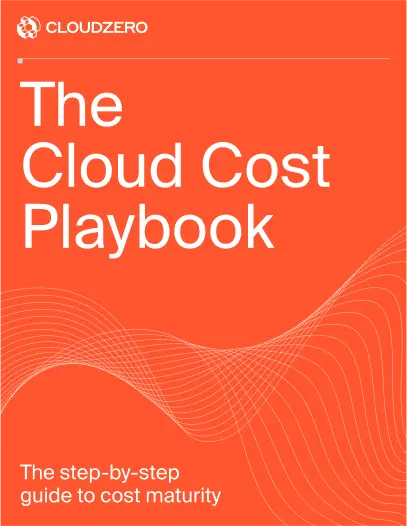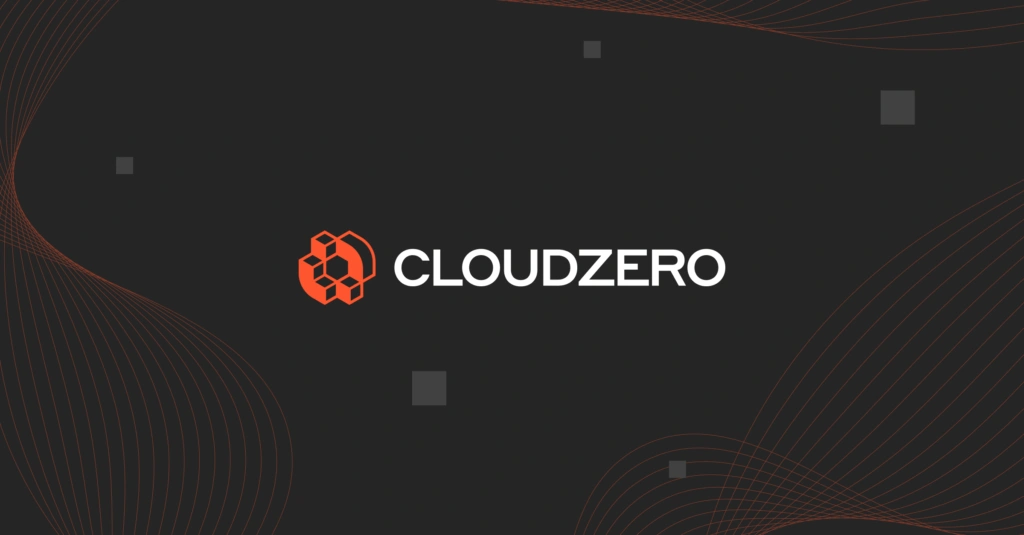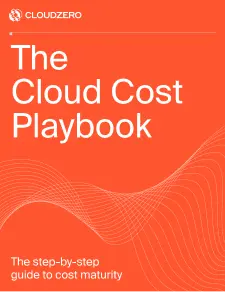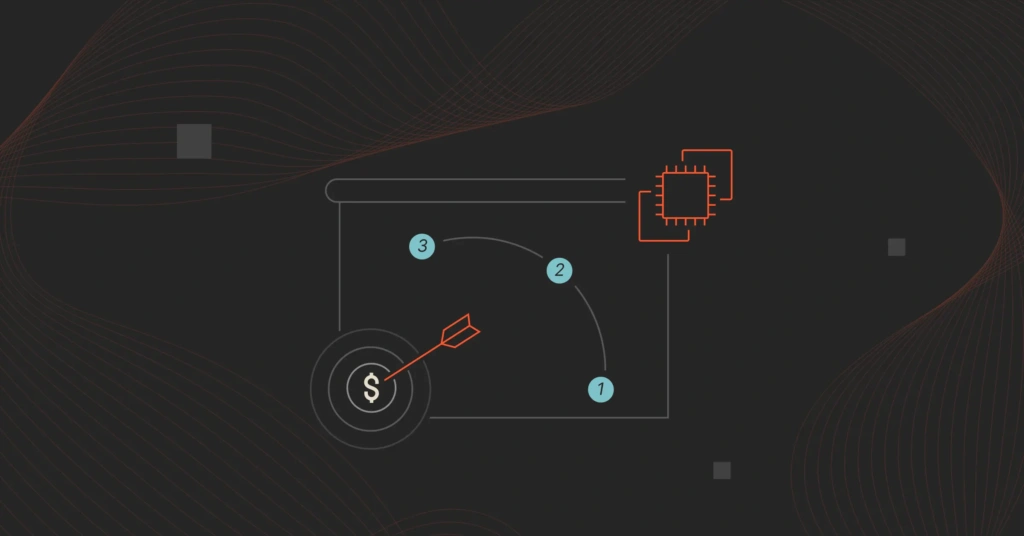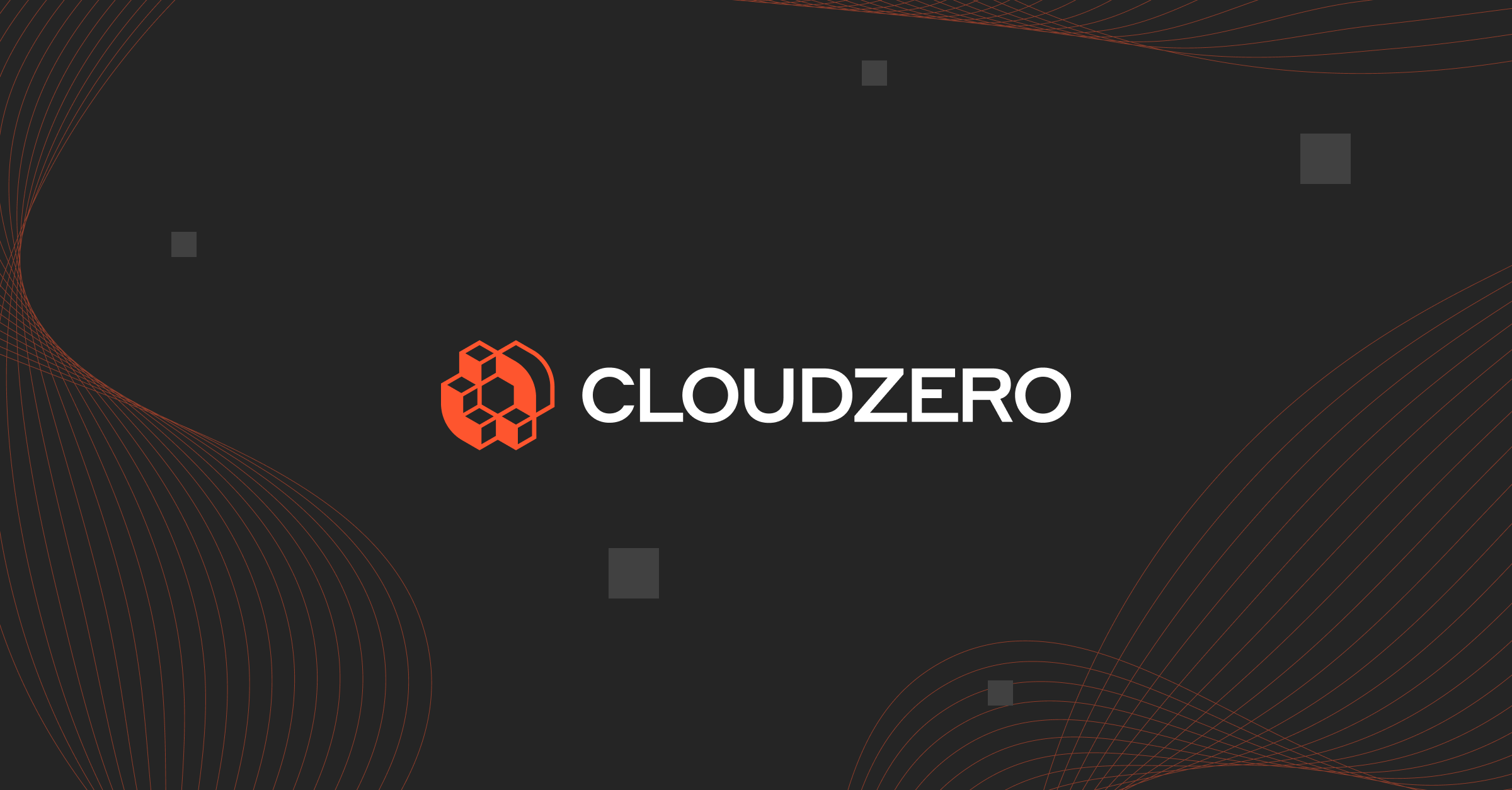In recent years, we have heard from customers and our networks that Kubernetes, the highly scalable and self-healing container orchestration platform, is only going to gain more traction.
That’s great news for software engineers wanting to become indispensable. Successfully managing containerized applications both in the cloud and on-premises will set you apart as a Kubernetes expert. And reading and implementing top Kubernetes books can help you achieve this goal.
It doesn’t stop there.
Table Of Contents
Why Learn Kubernetes Now?
Skilled Kubernetes engineers are in high demand. As Canonical highlighted in its 2022 Kubernetes and Cloud Native Operations report, a lack of in-house skills and limited skilled engineers are the most pressing challenges to Kubernetes adoption.
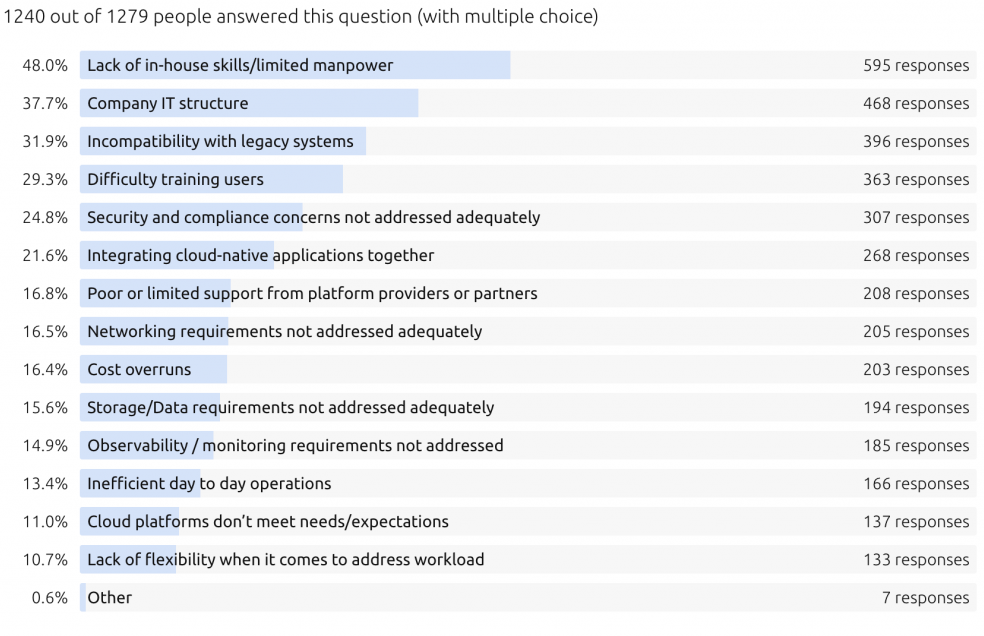
Credit: Canonical’s 2022 Kubernetes and Cloud Native Operations Report
Datadog found about 44% of those that are yet to adopt containers in production said it’s because they lack training.
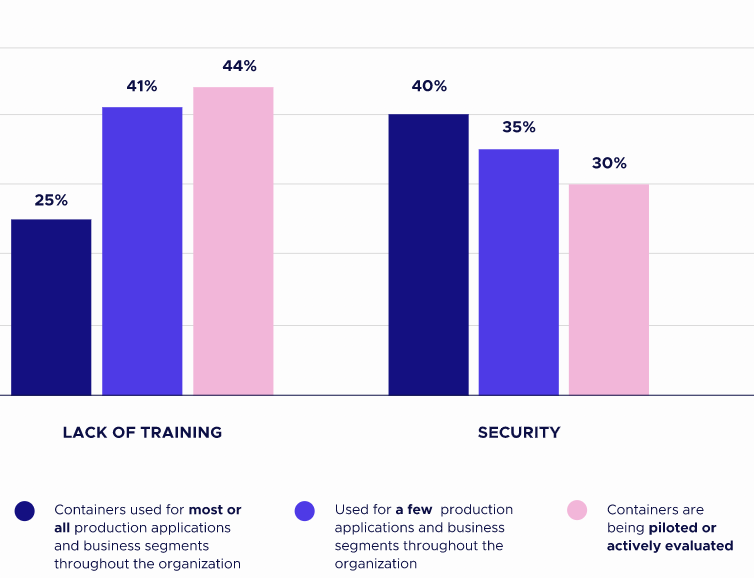
Credit: Lack of training is a major barrier to container adoption – CNCF
In addition, you’ll have plenty of opportunities to practice your new or refined Kubernetes skills. The Cloud Native Computing Foundation (CNCF) reported in 2022 that about 96% of respondents to its survey said they were using or evaluating K8s.
In 2023, 44% of respondents said they used containers in most or all production applications and business segments throughout their organizations.
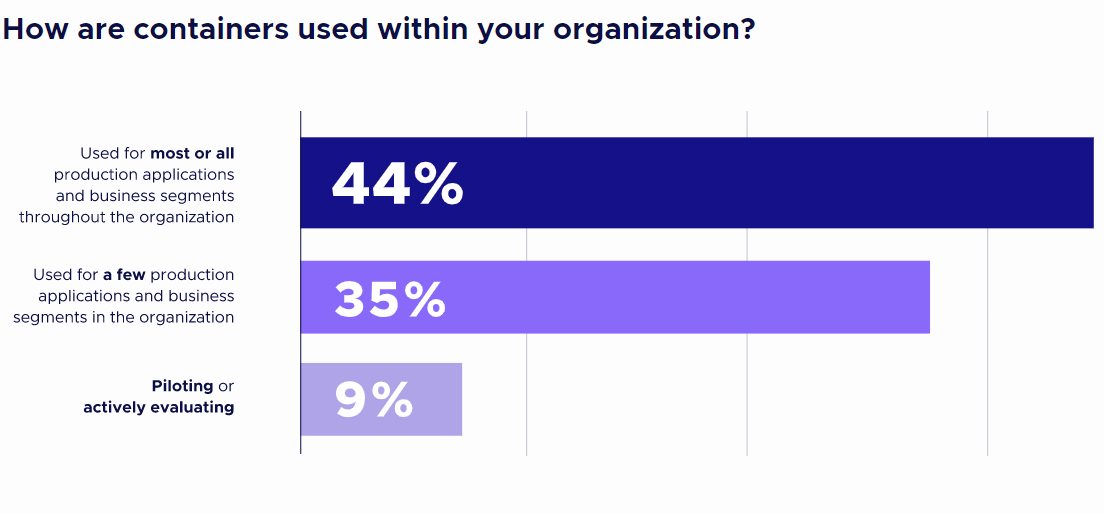
Credit: Kubernetes usage statistics – CNCF
Datadog’s recent container report showed nearly 50% of organizations used Kubernetes to deploy, run, and maintain containers in production.
By learning Kubernetes now, you can gain one of the most in-demand skills of the future.
You may not be new to K8s. Cloud-native best practices, microservices, and containers continue to evolve, so you can still hone your knowledge with Kubernetes books by industry experts.
So, what are the best places to start learning Kubernetes?
Kubernetes In 2023 And Beyond: Key Areas To Develop (And Make Yourself Indispensable)
Start by studying and improving your Kubernetes skills in three key areas: K8s security, reliability, and Kubernetes cost optimization, according to Fairwind’s 2023 Kubernetes Benchmark Report. The survey found that many Kubernetes teams are not configuring their K8s in accordance with Kubernetes best practices.
VMware’s State of Kubernetes report noted that Kubernetes is increasingly multi-cluster and multi-cloud. Being a new development, this presents an opportunity for learning and improving on.
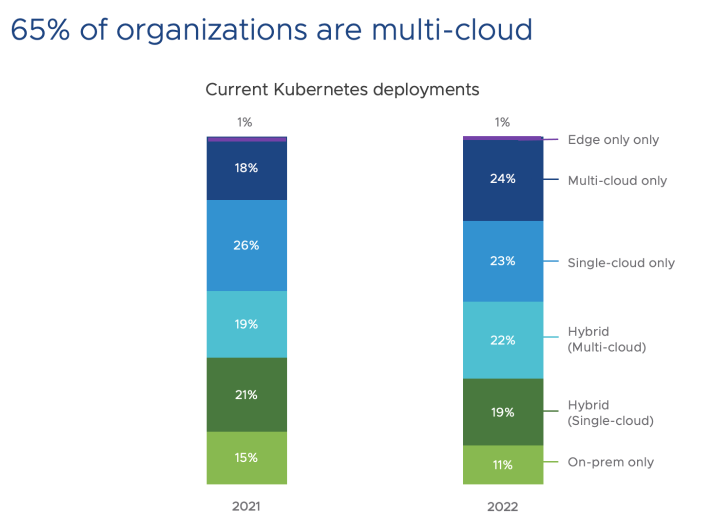
Credit: Number of organizations using a multi-cloud strategy – VMware
Something else. A majority of organizations rely on cloud-hosted Kubernetes (79%), which is en route to surpassing on-premises deployments. The most popular cloud-hosted options are Amazon Elastic Kubernetes Service (EKS), Azure Kubernetes Service (AKS), and Google Kubernetes Engine (GKE).
According to Dynatrace, 27% of respondents said they self-manage Kubernetes. Either way, you’ll want to learn how to deploy, run, and maintain containers with K8s on a variety of platforms.
One more thing. Become familiar with the technologies and tools used in Kubernetes systems. Among these are databases, CI/CD technologies, and open-source tools, led by Prometheus for data visualization and reporting. Here are some notable Kubernetes-related technologies you should know:
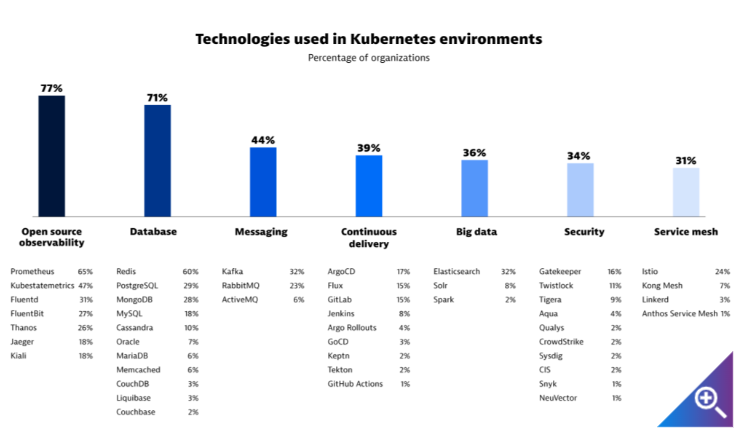
Credit: Important technologies and tools associated with Kubernetes
In that vein, here are some of the best Kubernetes books you can read to improve your skills. In addition, if you’d like to combine your Kubernetes knowledge with DevOps best practices, we compiled a bookmarkable DevOps books list for you here.
Top Kubernetes Books For Software Engineers
These top Kubernetes books will expand your knowledge about optimizing system reliability, containers, Kubernetes security, some technologies used in K8s environments, chaos engineering, and more.
1. Learn Kubernetes in a Month of Lunches
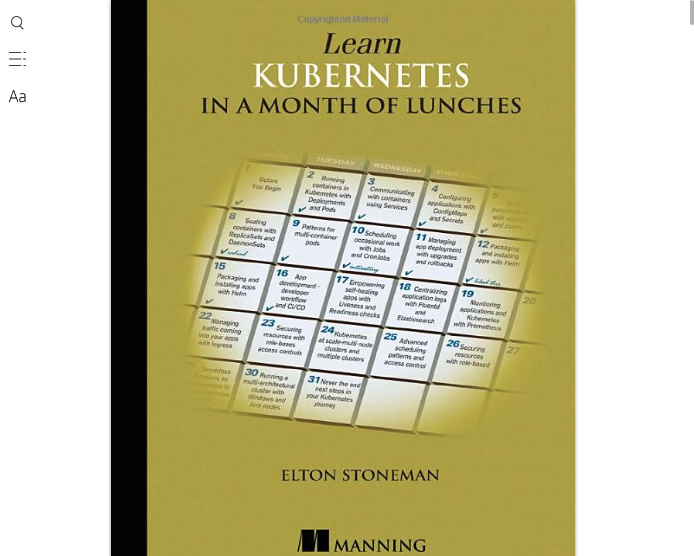
Author: Elton Stoneman
Year: March 2021
Through modeling, packaging, deploying apps on K8s clusters, and rollbacks, the author takes you on a journey from beginner to expert. Software engineers pressed for time will find the book especially useful.
The 22 bite-sized lessons and exercises are arranged in a task-focused structure that you can munch through during lunch breaks. Next, you’ll learn how to secure K8s applications and how to use Kubernetes as a deployment platform for other technologies (a bit like Linux).
Read the Learn Kubernetes in a Month of Lunches book here.
2. Kubernetes: Up and Running, 2nd Edition
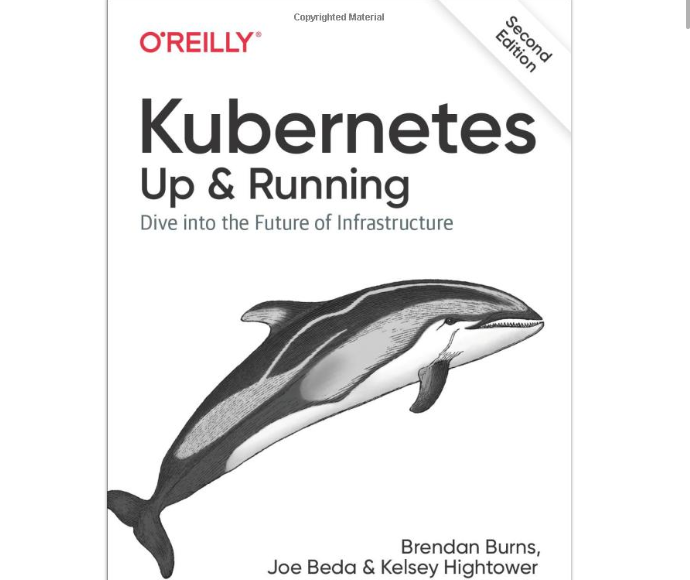
Authors: Kelsey Hightower, Brendan Burns, and Joe Beda
Year: September 2017
You should read this book if you’re interested in learning more about using Docker images with Kubernetes. Although Kubernetes recently switched runtimes, you can still run Docker containers on K8s, so the book isn’t a waste of time.
The authors discuss their experiences using K8s in bleeding-edge companies such as Google to tackle distributed systems challenges. In addition, they explain how to speed up your software releases without causing errors or downtimes.
The third edition (August 2022), examines specialized objects in greater depth, including DaemonSets, secrets, ConfigMaps, and jobs.
Read the Kubernetes: Up and Running, 2nd Edition book here.
3. The Kubernetes Book
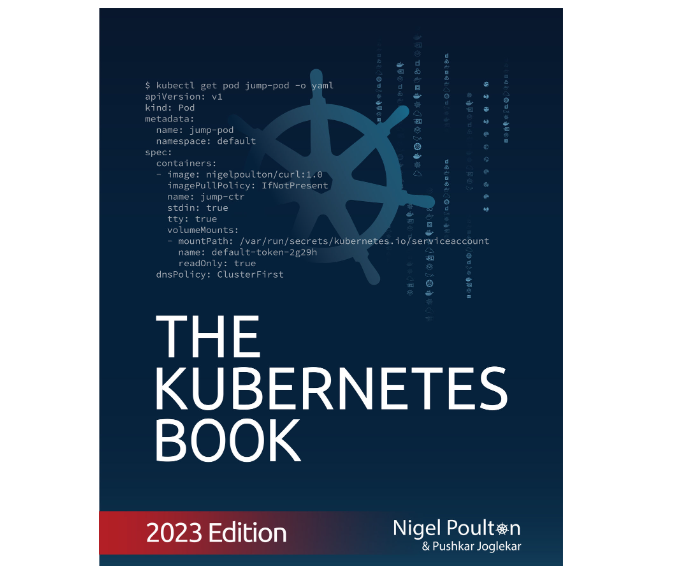
Author: Nigel Poulton
Year: July 2017
The book includes technical contributions by Pushkar Joglekar, a VMware Tanzu container security engineer.
You’ll learn how to install, run, self-heal, and scale Kubernetes. Look forward to learning about rolling updates, deploying K8s on multiple platforms, including on-premises and in the cloud through Amazon EKS, and more. Lastly, expect annual updates.
Read The Kubernetes Book here.
4. Kubernetes in Action
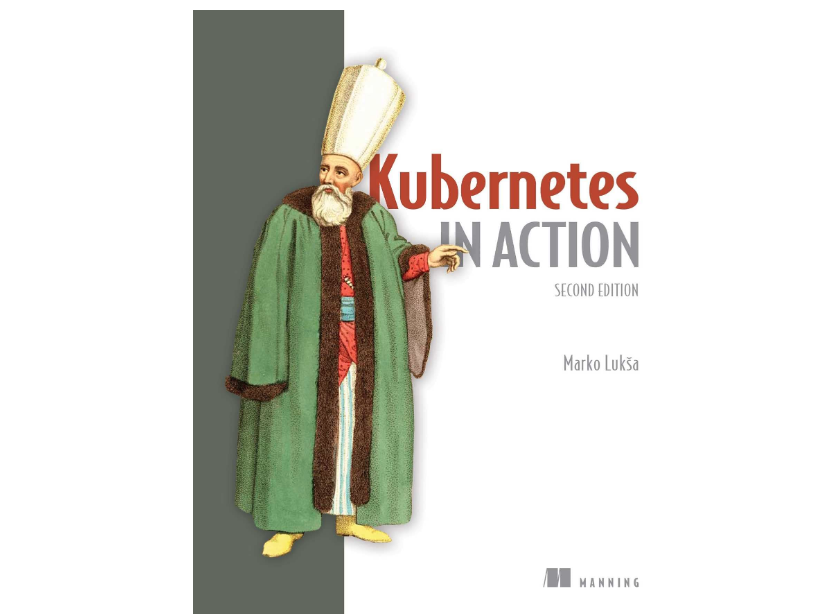
Author: Marko Luksa
Year: January 2018
In this hands-on book, you’ll learn container technologies, including Docker, before diving deep into Kubernetes.
You’ll come out able to build a Kubernetes cluster on your own, even if you have no prior experience with these technologies. It’ll feel like a Kubernetes course, where you learn how to build on, monitor, tune, scale, and optimize your containers using K8s.
Read the Kubernetes in Action book here.
5. Managing Kubernetes
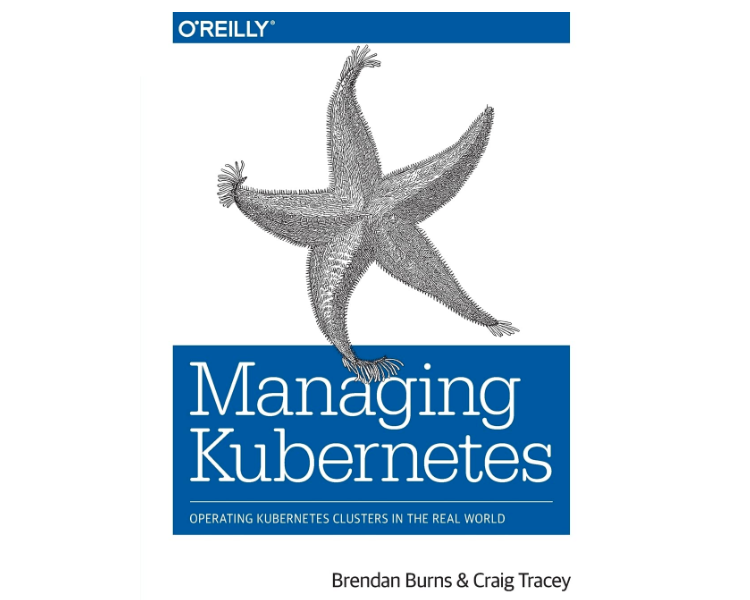
Authors: Brendan Burns and Craig Tracey
Year: November 2018
Managing Kubernetes: Operating Kubernetes Clusters in the Real World is a handy guide for understanding how Kubernetes clusters work.
By the end of the book, you’ll have an understanding of how to use K8s to facilitate your work as a developer, configuration options, and how to detect issues early, respond, and fix them before they escalate.
You’ll also learn when, how, and what tools, libraries, and platforms to add to your stack to improve your Kubernetes clusters.
Read the Managing Kubernetes book here.
6. Cloud Native DevOps With Kubernetes: Building, Deploying, and Scaling Modern Applications in the Cloud
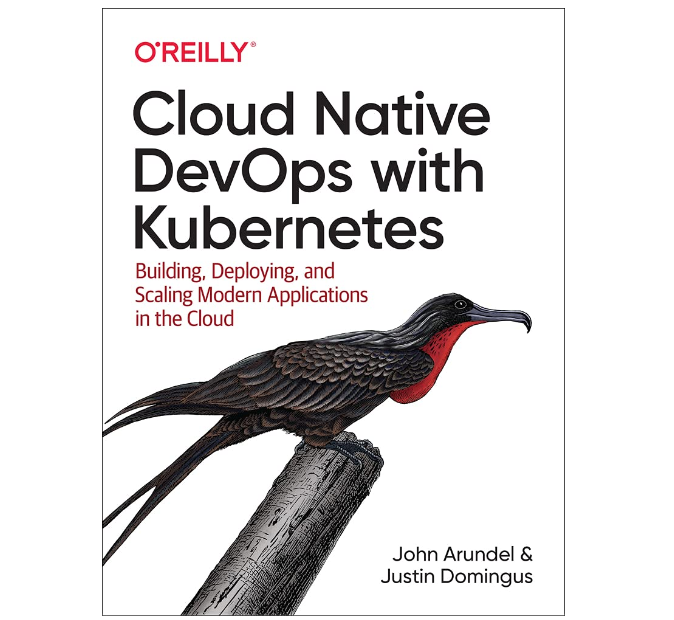
Authors: John Arundel and Justin Domingus
Year: April 2019
This resource explains the Kubernetes ecosystem in detail, a handy guide for ensuring your containers and K8s orchestrator are working the way they should.
To accomplish this, the book takes you step-by-step through creating a cloud-native app, its supporting infrastructure, a development environment, and a continuous deployment pipeline. It also unpacks some techniques to optimize your K8s performance, security, and cost.
Read the Cloud Native DevOps With Kubernetes: Building, Deploying, and Scaling Modern Applications in the Cloud book here. Get the second edition here.
7. Designing Data-Intensive Applications
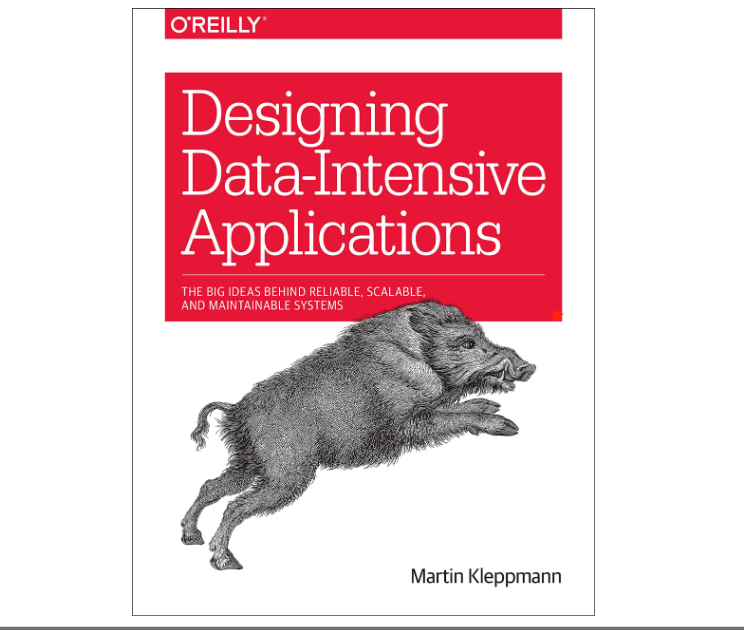
Author: Martin Kleppmann
Year: May 2017
Kubernetes deployments are highly scalable, so you’ll deal with lots of data. To avoid overwhelm, you’ll want to learn how to use the data as feedback to improve your app.
Designing Data-Intensive Applications: The Big Ideas Behind Reliable, Scalable, and Maintainable Systems provides expert guidance on choosing data platforms, tools, and technologies for processing and storing your data. In addition, you’ll get a behind-the-scenes look at some top online services, so you’ll know how to do it as well or better.
Get the Designing Data-Intensive Applications: The Big Ideas Behind Reliable, Scalable, and Maintainable Systems book here.
8. Kubernetes Cookbook
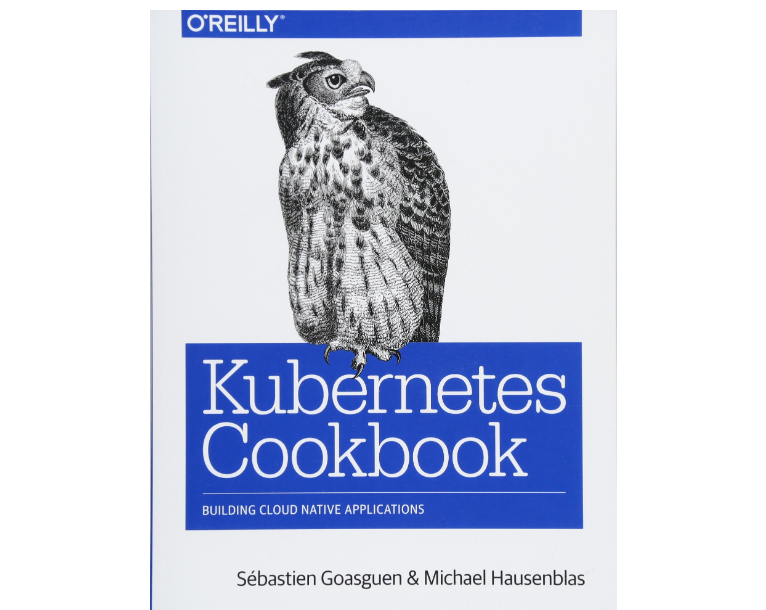
Authors: Sebastien Goasguen and Michael Hausenblas
Year: February 2018
Much like a cookbook, Kubernetes Cookbook: Building Cloud Native Applications deploys an easy-look-up format to ease installing and running applications on Kubernetes clusters.
The class then moves on to teaching Kubernetes APIs, API groups, primitives, monitoring, and troubleshooting. Besides writing pod manifests from scratch, you’ll also learn how to make services available from outside a cluster, and manage specialized workloads.
Read Kubernetes Cookbook: Building Cloud Native Applications book here. Get the second edition here.
9. Production Kubernetes: Building Successful Application Platforms
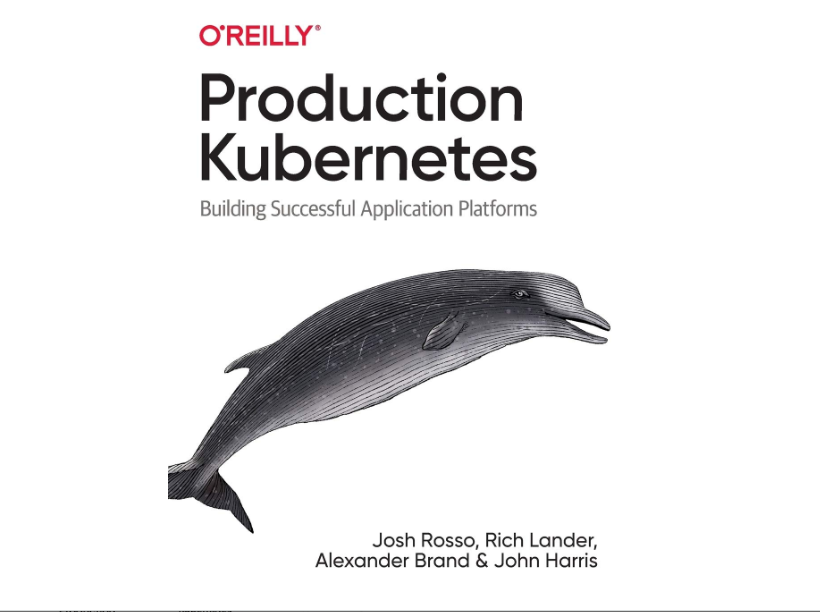
Authors: Josh Rosso, Rich Lander, Alex Brand, and John Harris
Year: March 2021
A quintet of authors comes together to create a rich resource on configuring and extending Kubernetes in production. The book covers the various technologies, patterns, pluggable runtimes, abstraction considerations, and storage integrations you’ll want to know on your path to succeeding with Kubernetes.
Read Production Kubernetes: Building Successful Application Platforms book here.
10. DevSecOps: A Leader’s Guide to Producing Secure Software Without Compromising Flow, Feedback, and Continuous Improvement
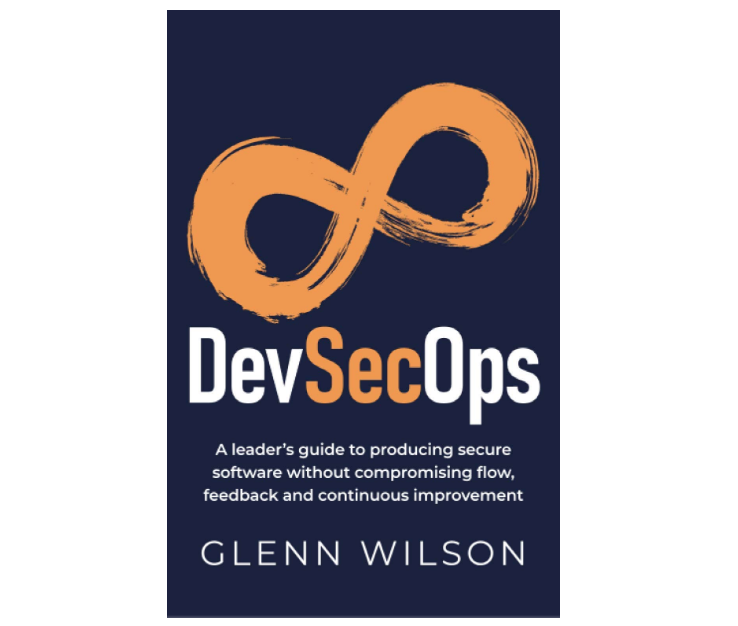
Author: Glenn Wilson
Year: December 2020
The author founded Dynaminet, an Agile security and DevSecOps consulting firm. His guide on integrating security into your engineering process is based on his experience as CTO as well.
You’ll learn how to evaluate security across your value streams, use feedback loops to improve your security posture, and how to maintain a solid DevOps framework while at it.
11. Container Security
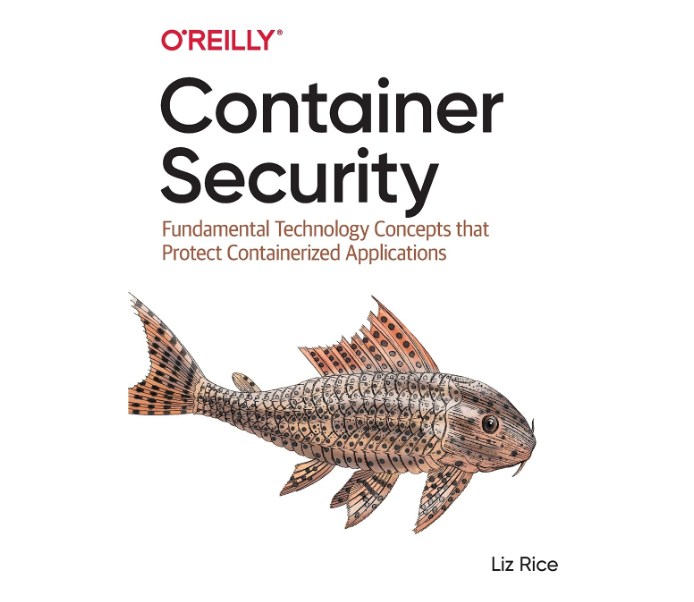
Author: Liz Rice
Year: April 2020
Isovalent’s Chief Open Source Officer, Liz Rice, examines how exceptional engineers use Linux to develop blocks often used in container-based systems. Then, as you deploy containers, you’ll know what’s happening and be able to identify potential security risks.
You’re ready to start if you’re familiar with kubectl or docker or run Linux command-line tools like ps and grep.
Read Container Insights book here.
12. Kubernetes Patterns: Reliable Elements for Designing Cloud-Native Applications
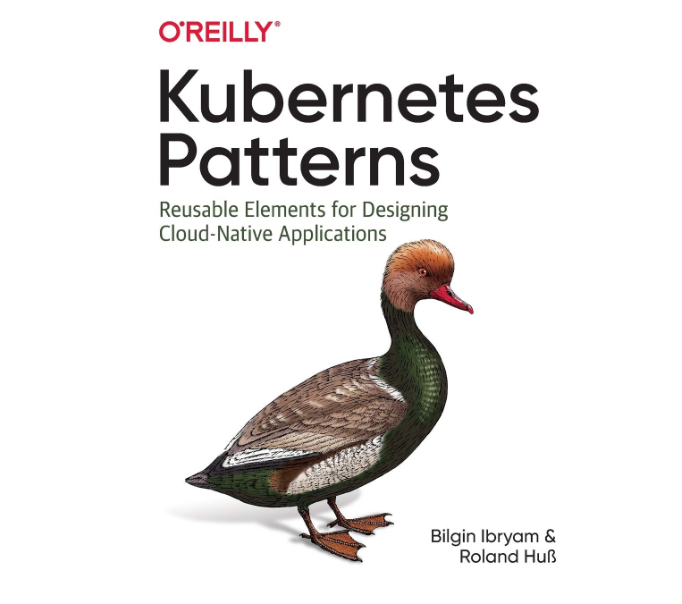
Authors: Roland Huss and Bilgin Ibryam
Year: April 2019
If you are already familiar with Kubernetes basics, deep-dive into this workbook to learn more about the five Kubernetes patterns that really matter; foundational, behavioral, structural, configurational, and advanced patterns.
Read the Kubernetes Patterns book here.
13. Team Topologies: Organizing Business and Technology Teams For Fast Flow
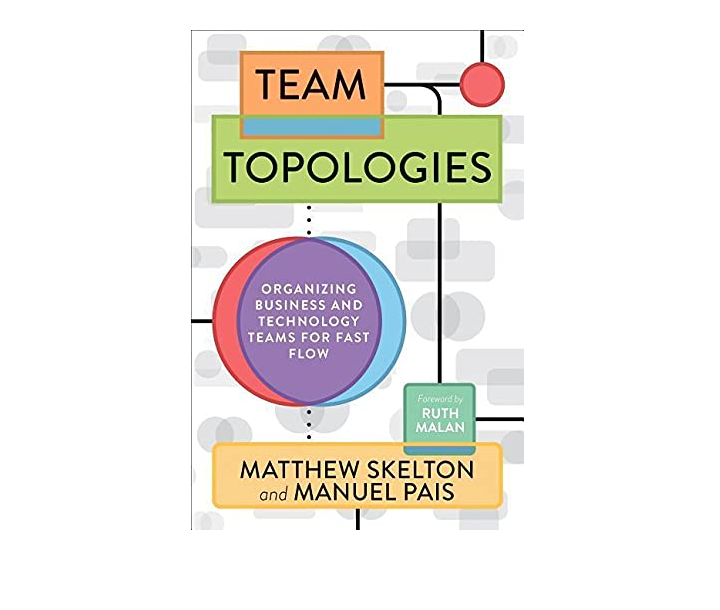
Authors: Mathew Skelton and Manuel Pais
Year: September 2019
Team Topologies shares actionable insights into using four team types and three team interaction patterns to deliver quality software continuously. In this guide, you’ll learn about adaptive organizational design and how to choose and evolve your team to achieve your targets.
Read the Team Topologies: Organizing Business and Technology Teams For Fast Flow book here.
14. GitOps and Kubernetes: Continuous Deployment With Argo CD, Jenkins X, and Flux
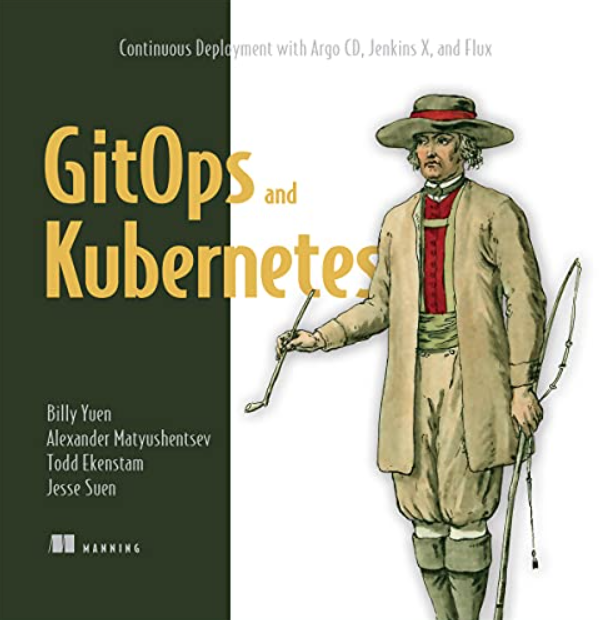
Authors: Bill Yuen, Alexander Matyushentsev, Todd Ekenstam, and Jesse Suen
Year: March 2021
This is one of the best Kubernetes books to read now because it provides insights into how to deploy containerized apps running on K8s using the Git version control system you already use with your other codebases.
As you progress, you’ll learn how to leverage GitOps best practices to optimize your Kubernetes infrastructure.
Read the GitOps and Kubernetes: Continuous Deployment With Argo CD, Jenkins X, and Flux book here.
15. Kubernetes in Production Best Practices
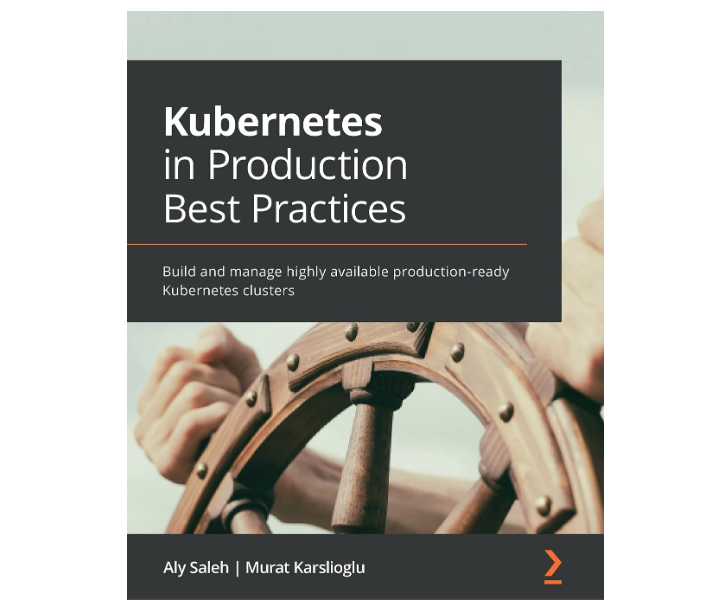
Author: Aley Saleh
Year: March 2021
A cloud architect and transformation leader, the author shares immediately actionable know-how on configuring, networking, scaling, hardening, and optimizing K8s environments for success.
In addition, it shares best practices for both Configuration as Code (CAC) and Infrastructure as Code (IaC) in relation to Kubernetes.
Read the Kubernetes in Production Best Practices book here.
16. Certified Kubernetes Application Developer (CKAD) Study Guide
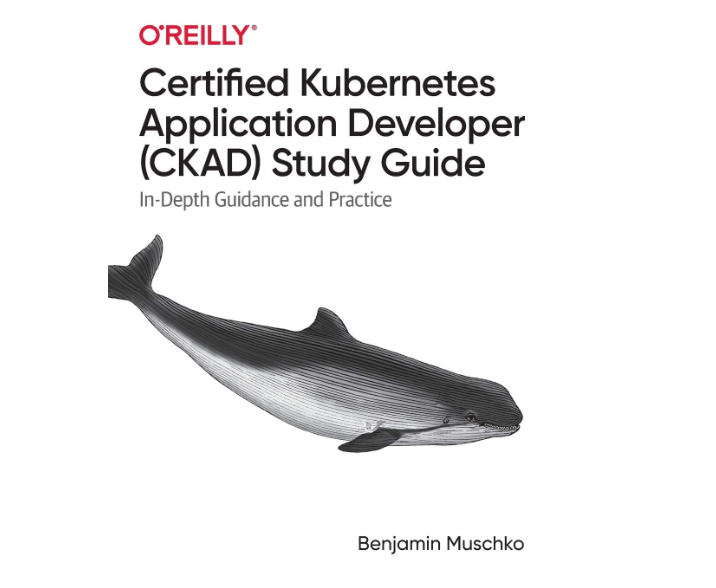
Author: Benjamin Muschko
Year: March 2021
This is a study guide for the Cloud Native Computing Foundation’s highly regarded exam of the same name.
The assessment is unique in that it doesn’t include multiple-choice answers like other certification exams, so you need to have a deep understanding of the subjects. So, this guide teaches you about topics to study and other aspects that’ll help demonstrate your engineering competence in the job market.
Read the Certified Kubernetes Application Developer (CKAD) Study Guide book here.
17. Chaos Engineering: System Resiliency in Practice
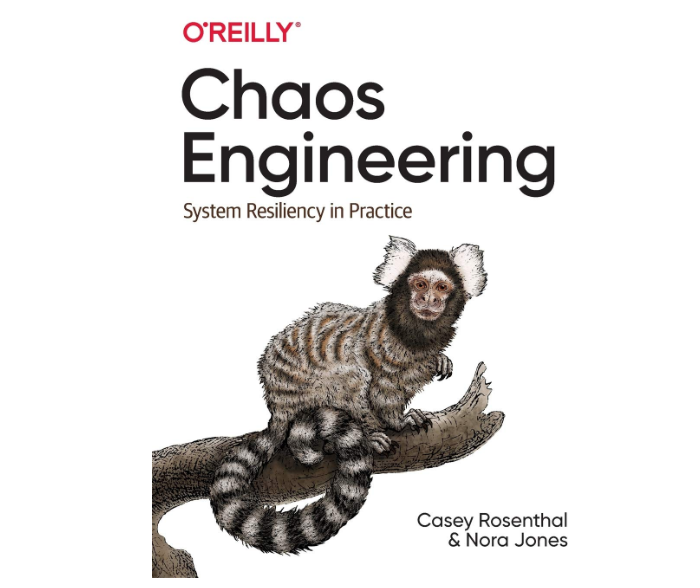
Author: Casey Rosenthal and Nora Jones
Year: April 2020
While Kubernetes features self-healing capabilities, you’ll want to test your K8s containers on a proactive basis to prevent downtime at the worst possible times. Based on their experiences at Netflix and elsewhere, the authors share proactive ways to target, automate, and optimize chaos engineering experiments with less hassle.
Read the Chaos Engineering book here.
What Next: Learn To Build, Control, And Optimize Kubernetes Costs With Cost Intelligence
The more you learn about Kubernetes, the more indispensable you become as an engineer. As you read and practice the tested techniques and strategies in these Kubernetes books and guides, you’ll become better at maintaining reliability, secure, and scalable clusters.
While you’re at it, you’ll want to build Kubernetes clusters that won’t keep your CFO and finance team up at night. First, you need a robust cost platform that shows you how your technical decisions impact your organization’s finances — and in a language both FinOps and engineers can understand.
CloudZero’s Kubernetes Cost Analysis approach can help you accomplish that and more.
With CloudZero’s unit cost approach, you can:
- View Kubernetes costs by pod, cluster, namespace, and other K8s concepts you actually care about.
- Understand your costs down to the hour to avoid surprises.
- Combine and analyze your containerized and non-containerized costs together to avoid cost blindspots.
- Detect and prevent overspending with noise-free alerts about abnormal Kubernetes costs straight to your inbox (or Slack).
- Analyze your containerized infrastructure’s cost of goods sold (COGS) like the pro you are.
- Allocate 100% of your Kubernetes costs accurately, seeing who, what, and why your budget is changing.
- Use CloudZero Advisor (free tool) to compare AWS services, like EC2, ECS, and EKS, including finer details on pricing, instance types, sizes, etc.
 to learn how CloudZero can help you simplify, automate, and optimize your Kubernetes cost management.
to learn how CloudZero can help you simplify, automate, and optimize your Kubernetes cost management.
